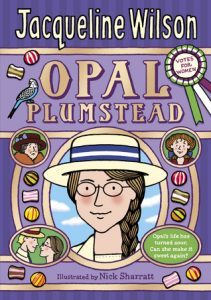Claire Hennessy's Blog, page 15
October 3, 2016
Banshee update!
Issue #3 of Banshee is available now and will be launching in Dublin, in Books Upstairs (D’Olier Street) on Wednesday 12th October from 6.30pm. Join us for readings, wine and writerly chat!
Banshee editor Eimear Ryan will also be taking part in the Publishing Salon in the Liquor Rooms this Wednesday (5th October) from 7pm.
Submissions for Issue #4 (spring 2017) are open from now until the end of October. We’re looking for short stories, flash fiction, essays and poetry – full details at the link.
Other upcoming literary events of interest: The Glass Shore (ed. Sinead Gleeson), a collection of short stories from Northern Irish women writers, launches this Wednesday in Hodges Figgis. Illuminate, Kerrie O’Brien’s debut full-length poetry collection, launches in Books Upstairs on Thursday.
September 19, 2016
Book Review: The Wonder
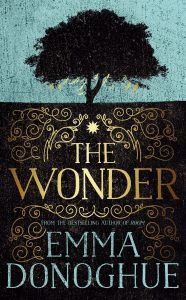
Watch
to observe
to guard someone, as a keeper
to be awake, as a sentinel
a division of the night
In a small Irish midlands town, eleven-year-old Anna O’Donnell appears to be subsisting on nothing but air. This is 1859 and the country is still haunted by the Great Famine, and twenty years away from strange happenings in Knock. Visitors to the O’Donnell’s cottage leave gifts and donations to the poor, drawn to this ‘wee wonder’, this miraculous child who has surely been selected by God.
Determined to verify that she really is going without food, the locals form a committee and agree to hire nurses to watch the girl. One an old nun, and the other Lib Wright, an English nurse trained by Florence Nightingale – Miss N. – in the Crimea. Lib is our entry point into this strange world, and as someone not steeped in the strange rituals of Roman Catholicism and Celtic lore, she’s ideally situated to echo what a modern reader will certainly think: they’re all mad. She’s determined to prove that this is all a fraud – but her careful observations reveal nothing about how this girl is managing to survive.
The mystery of that – and then the why of it – propel the story along, and Donoghue’s eye for detail means you’re immersed in this odd place and time. Lib is modern and practical, frequently frustrated and bemused by the Irish, although their representation never crosses over into caricature. And as the mystery unfurls it all feels terribly familiar – the grasp of the church and faith on people, and what that can lead to. The secrecy, the treatment of girls and women. The people of the nineteenth century believed themselves to be modern and civilised. So do we.
But thematic matters aside, it’s just a damn good read – I zipped through it, eager to find out what would happen next, intrigued by Lib and Anna and charmed by the young reporter who comes along to investigate the ‘wonder’. It’s gorgeously written and magnificently plotted, a smart psychological thriller about the slow death of a child. Very very much recommended.
September 16, 2016
September 4, 2016
September happenings!

Hello! I’m flying across the treacherous Irish Sea for the #2 reason Irish women do so – work! Do pop in if you’re around… tickets are available from links below.
Tuesday 6th September: Waterstones Brighton
Wednesday 7th September: London – Waterstones Piccadilly
Thursday 8th September: Waterstones Liverpool
Wednesday 14th September: Waterstones Cardiff
Thursday 15th September: Waterstones Birmingham
Also! Look what’s on Kindle sale this month…
(I hereby promise that the next blog post here will be less self-promotey and all about other people’s lovely books. Have just finished the new Emma Donoghue and it is gorgeous…)
September 2, 2016
More recent scribblings

I love, love, love school stories. So I chatted to Jenny Colgan about her ‘Malory Towers for grownups’ series, which has just been reissued under her own name (the first two books were originally published under ‘Jane Beaton’).
I also asked five Irish children’s and YA writers about their favourite school stories. Enid Blyton proved a firm favourite.
On picture books and other beautiful books of joy, including the new Oliver Jeffers/Sam Winston collaboration.
August 28, 2016
Book Review: Notes on Being Teenage
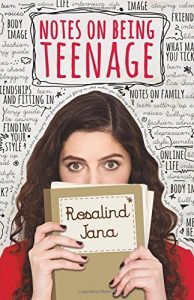
I am jealous of women with poise. Rosalind Jana has it in spades. I run into her at YALC (the Young Adult convention in London) and she introduces herself and is so classy and grown-up that I feel like a gawky fifteen-year-old, rather than someone nearly a decade older than she is. She is also beautiful and talented, clearly not having received the memo about women only being allowed have one of these options. Mind you, I am hanging out with Deirdre Sullivan at the time, so I am surrounded by rule-breakers.
Anyway. Jana is twenty-one, and a recent Oxford graduate; she is a part-time model and writer who has a poetry collection forthcoming (she performed a gorgeous poem at the YALC poetry slam. As did that Sullivan one, actually. Damn their brilliance!). But that’s not even her first book – that honour is reserved for Notes on Being Teenage (Wayland, £6.99). It’s a non-fiction guide to life, from someone young enough to be sufficiently copped-on about the internet and how it’s very much a part of existing in the world today, rather than this separate thing. But she’s also wise enough to have figured out so many of the things that most of us spend years learning and re-learning.
Follow your passions and work hard and don’t be afraid of rejection. Don’t feel you need to solve everything for your friends – but here’s how to listen to them and be supportive. Here’s how to develop your own personal style and feel confident in your own body. She’s particularly interesting on ‘ethical style’, encouraging everyone to research where their clothes are coming from, and the treatment of workers, and also has a – oh, dare I use the term ‘inspiring’? – history with a few tough issues, including dealing with a family member’s depression and recovering from serious spinal surgery to treat advanced scoliosis, that seems to have given her perspective without turning her into a Pollyanna.
Alongside her own take on life, love, friendship, confidence, and careers are interviews with writers, activists and entrepreneurs, and there are plenty of resources listed for the more serious issues tackled, like eating disorders and other mental illnesses.
My teenage self was something of a cynic but I like to think she would have been nudged over into feeling-inspired territory by this book – it avoids being preachy or unrealistically wholesome, acknowledging that we all do stupid things and make mistakes. It’s hard to feel as though someone is lecturing you when they’re also admitting to being embarrassingly drunk at a family event, or confessing that they have needed to make huge apologies to their friends at different stages.
My adult self, incidentally, adores this book. It feels like a hug, a reassuring reminder that it’s okay to be yourself, and maybe more well-adjusted humans stop needing to hear that at a certain point. But I maintain that the important life lessons are the things we keep needing to re-learn, over and over again, because it’s all easier said than done.
August 22, 2016
Quickfire mini-reviews (grown-up books!)
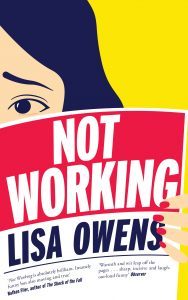 Lisa Owens’s Not Working is a funny and neatly-observed tale about a woman in her late twenties who quits her job to ‘find herself’ and figure out ‘what she really wants to do with her life’. Fortunately, she doesn’t decide she wants to be a writer – which is where I feared it was going – but instead we find ourselves questioning the idea of whether your work needs to be completely fulfilling, and what the trade-offs are. As someone fascinated by work and people’s relationships to it, I really enjoyed this.
Lisa Owens’s Not Working is a funny and neatly-observed tale about a woman in her late twenties who quits her job to ‘find herself’ and figure out ‘what she really wants to do with her life’. Fortunately, she doesn’t decide she wants to be a writer – which is where I feared it was going – but instead we find ourselves questioning the idea of whether your work needs to be completely fulfilling, and what the trade-offs are. As someone fascinated by work and people’s relationships to it, I really enjoyed this.
The Other Side of Silence by Linda Gask is a memoir about depression by a psychiatrist, offering us a look at two sides of the fence. Gask draws on her own experience as well as what she’s seen with her patients, and provides insights into treatment and theories. A surprisingly quick read.
For your inner nerd, Set Phasers to Stun by Marcus Berkmann explores fifty years of Star Trek, although the bulk of the material focuses on the original series and The Next Generation with very little to say about later series in the franchise. There’s a lot of behind-the-scenes gossip, but it’s also incredibly critical of many of the episodes and decisions made – which feels strange coming from a self-professed fan.
Liz Nugent’s Lying In Wait is one to zip through because you’ll need to know how it all turns out. The novel begins with a murder and skips on from there, with the narration alternating between an unbearably snobbish society wife, her son, and the dead girl’s sister. If you like your suburban gothic you’ll eat this up.
Fat Chance by Louise McSharry is an incredibly honest and inspiring memoir about growing up under tough circumstances, with an alcoholic mother, and also what it means to be ‘fat’ and what bodies are there for. Here’s a story we don’t hear very often: woman loses weight. Woman is praised for losing weight. Woman is losing weight because she has cancer. But it’s more common than you might think, and the idea of weight loss as only a ‘bad thing’ if one is of an ‘acceptable’ weight already is downright dangerous. If the ‘beach-ready body’ bullshit has crept its way inside your brain, have a read of this.
August 19, 2016
Quickfire mini-reviews (YA books!)
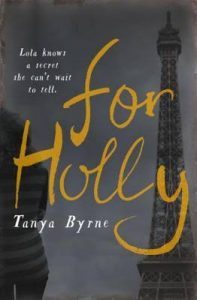
I do love reading something and immediately needing to go buy the author’s other books. This happened to me with Tanya Byrne’s For Holly, which is narrated by a teenage girl addressing letters to a mysterious ‘Holly’, explaining a situation that slowly becomes clear. Lola hates living in Paris with her horrific stepmother, and deeply misses her mother; her father doesn’t understand her and never takes her side, and all the while she just wants to escape. But when she finds out that her wicked stepmother has a secret, she plots her revenge – which we already know will have dangerous consequences. Suspense-filled and authentically teenage.
Another girl with a dark secret is Zoe – at least, that’s the name she’s chosen. Annabel Pitcher’s Ketchup Clouds is similarly structured to For Holly, told in epistolary format, but here Zoe’s writing to a stranger – a man on death row who she feels sure is the only person that could understand the horrible thing that she’s done.
This led to more Annabel Pitcher – her latest novel, Silence is Goldfish, begins with Tess planning to run away. She’s discovered that the father she’s always trying to impress is not really her dad – and she’s heart-broken to discover that he didn’t feel like her dad when she was born, either. A nuanced story about family and identity.
Chris Lynch’s Inexcusable was first published in 2005, a chilling look at how date rape looks from the point of view of the perpetrator. Keir is the golden boy, an athlete, not someone who would ever do something ‘bad’ – and yet he has. In the sequel, Irreversible (out next month in the US), he’s in his first year of college, still not having entirely confronted the reality of what he’s done and the reality of who he is, how he blames other people for his own failings. An interesting – if painful – look at the entitlement of young male athletes, while still urging some sympathy for Keir.
The prolific David Levithan has teamed up with Nina LaCour for his latest novel, You Know Me Well, depicting the friendship between a gay boy in unrequited-love with his best friend, and a lesbian artist yearning for a girl she’s only ever heard about. It offers up insights into what it is to be young and queer – taking place in San Francisco and partly during Pride – but it also leans a little too heavily on some familiar tropes in Levithan’s work, in particular the ‘one wild night’/’quirky chain of events’ idea. Very readable but not startlingly new.
August 7, 2016
Some recent scribblings elsewhere
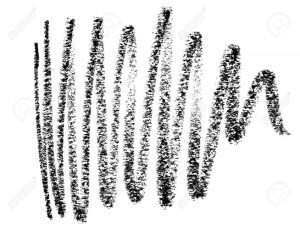
A few bits and pieces from around the interwebs:
some thoughts on editing and publishing
Harry Potter and the wonders of the school story genre
self-indulgence alert: ten things about me
foxes and feminism in kidlit and YA
Sweet Valley, Christopher Pike and my misspent bookish youth
psychological thrillers about gymnastics are marvellous
the magic of Circle of Friends
July 23, 2016
Book Review: Opal Plumstead
Opal Plumstead is the plain and clever one in her family, unlike her beautiful older sister. While her sister works in a shop selling beautiful things to rich ladies, Opal is a scholarship student looking up to her writer father. But her father is keeping secrets from the family – and when he is taken away to prison in disgrace, it’s off to work for Opal.
The Fairy Glen sweet factory seems like a dream job for modern readers, but we quickly learn how difficult the work is and how cruel the other girls are to Opal. As with Wilson’s more modern work, we also see what it means to have to struggle with money, to have to think about each meal and expense very carefully.
Opal’s ‘step up’ in the factory – to painting the pictures on the chocolate boxes – seems like a dream come true, and she soon comes under the influence of the factory’s owner, who introduces her to the suffragette moment. For a time it seems like it all might work out – but Wilson refuses to give her readers a fairytale ending.
This is an incredibly engrossing look at pre-war Britain, which is in some ways so distant and in other ways very familiar. Opal’s story twists and turns in unexpected ways – and nothing is sugar-coated for a young reader. Although it’s pitched at her typical 9-12 audience, teen readers would enjoy this too. One of my very favourite Jacqueline Wilsons (of the hundred or so that prolific lady has penned) and highly recommended.



